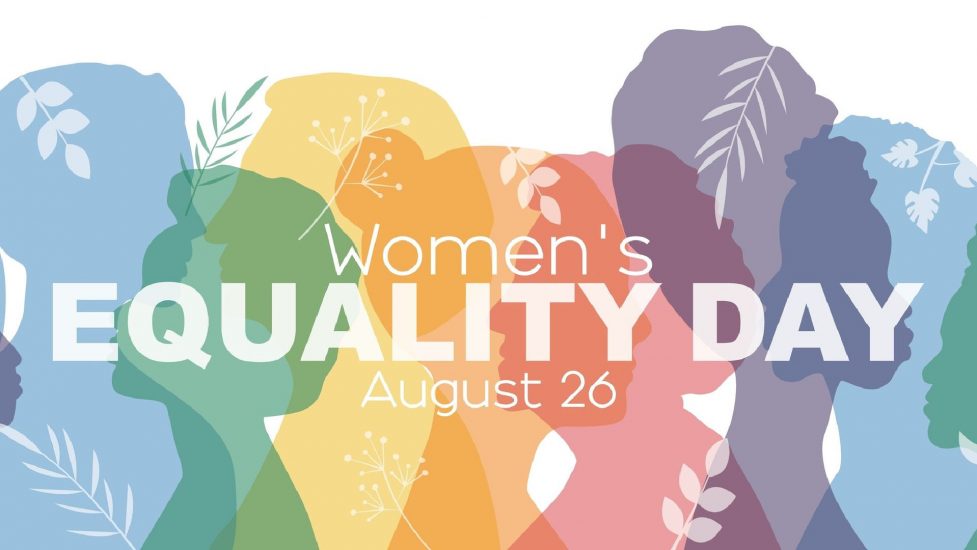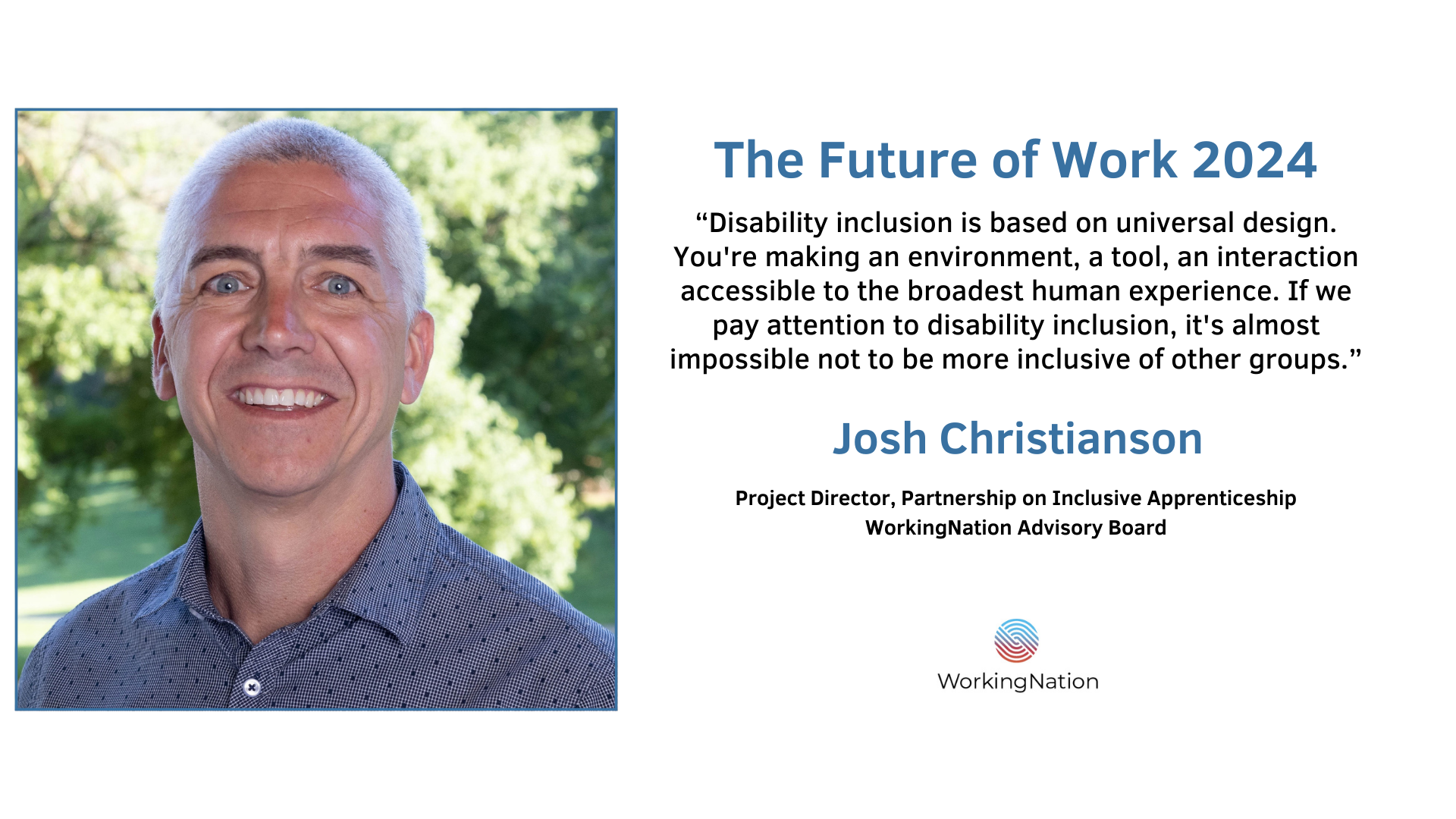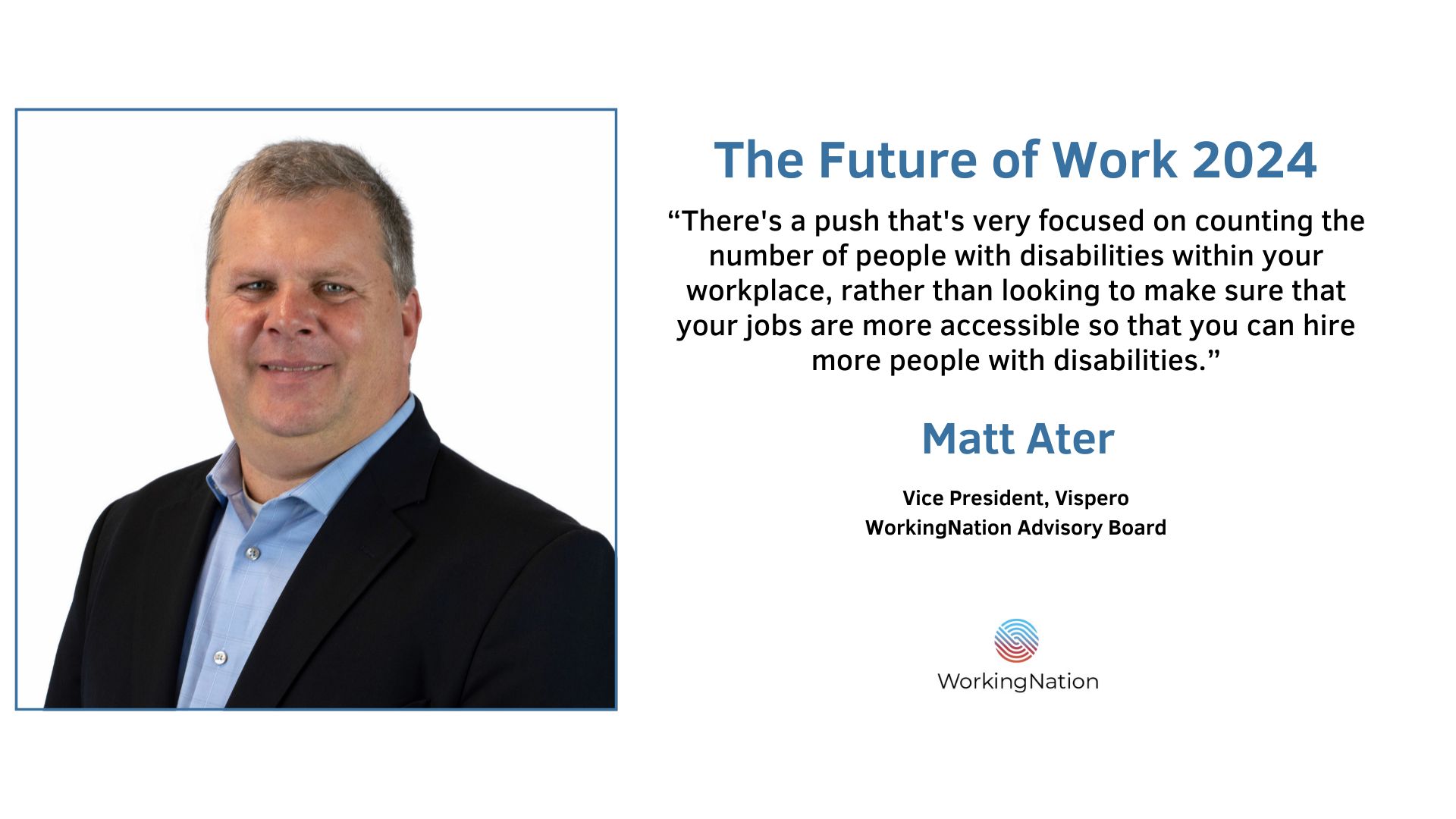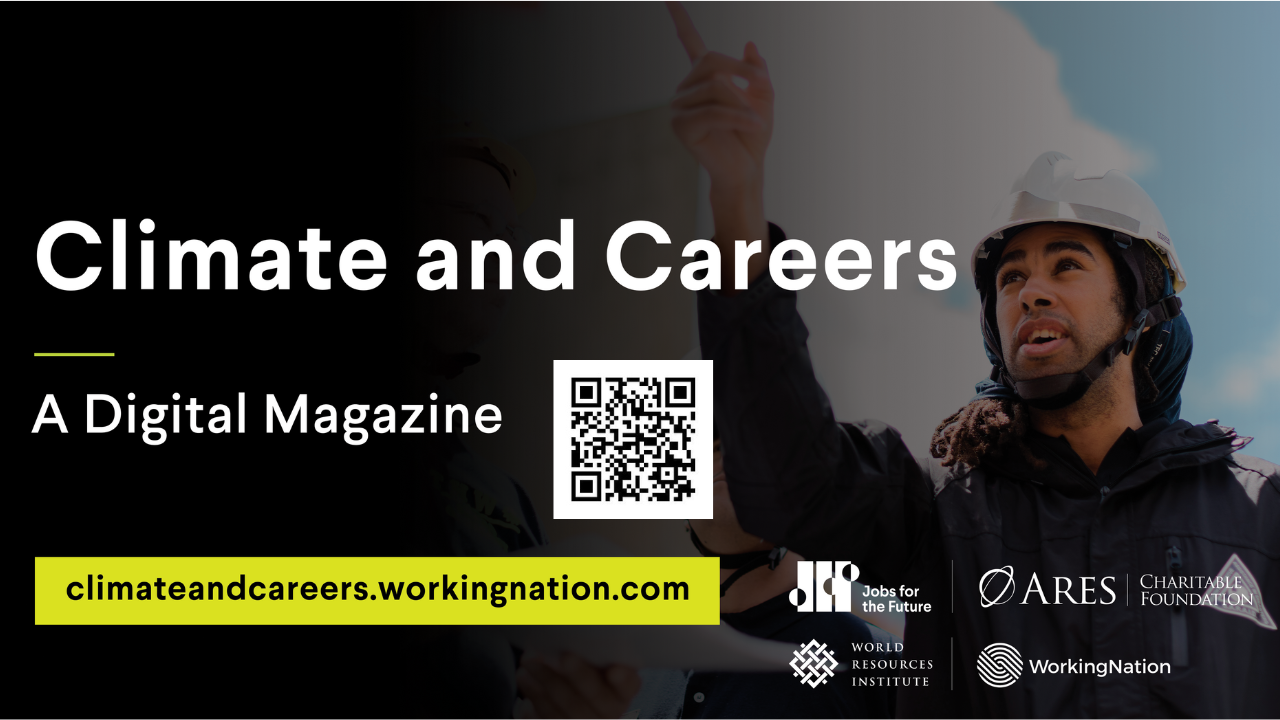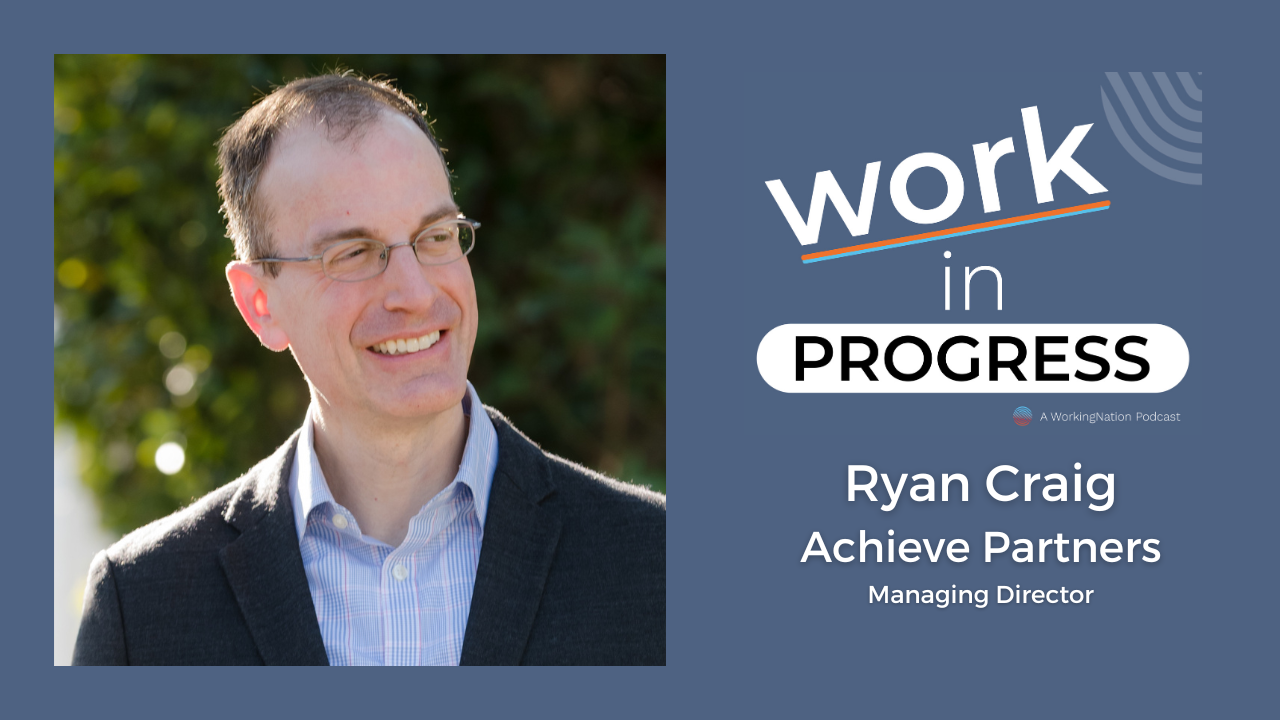August 26th is National Women’s Equality Day – a day to celebrate the women’s suffrage movement and the decades-long fight to pass the 19th Amendment granting women the right to vote in the United States in 1920.
As the nation remembers the determination and resilience of the leaders who fought to guarantee equal rights for women, WorkingNation recognizes remarkable women working to break down barriers to create equal access to economic opportunity for everyone.
Over the five years, we’ve met with, spoken to, and partnered with hundreds of women making a difference in workforce development and education, and who are leveling the playing field for the workforce of today and the future.
We can’t feature all of them, but – mark our words – we admire them all!
So, in their own words, meet some of these women as they tell us about their roles, their organizations, and their missions.
Opening Economic Opportunities to All
Amanda Cage, president and CEO, National Fund for Workforce Solutions
“We have industry partnerships in manufacturing, construction, health care, IT, and a number of other industries. The nonprofit is a national network of innovators and implementers in workforce development with a shared goal of collaborating with workers, employers, and communities to advance a skilled workforce, promote good jobs, and invest in equitable outcomes.”

Mona Mourshed, founding global CEO, Generation
“We asked employers to describe what are the strengths that you see of different job candidates in the different age brackets. Long story short, employers see the age 45+ population as having absolutely no strengths relative to those who are ages 18-to-34 or 35-to-44. We asked the very same employers, ‘In those cases where you have hired ages 45+ within the last three years, how are they performing relative to their job peers?’ We found that 87% of those individuals are performing as well, if not better, than their younger job peers.”

Maria Flynn, president and CEO, Jobs for the Future (JFF)
“At JFF, what we’re really working on is how do we really broaden the discussion, change the narrative around the different high-quality pathways that exist for folks beyond high school. That could include registered apprenticeship, it can include community colleges, it includes industry-recognized credentials, and many options that can be stepping stones to a four-year degree or to great career opportunities and advancement.”

Nicole Elam, president and CEO, National Bankers Association
“The good news is that people are becoming more and more engaged with mobile banking and technology. You’re able to access minority banks even if one isn’t down the street, but the distinguishing factor about minority banks is that they are sitting in and serving your communities. Even though there may not be one next door to you, we are certainly focused on making sure that they have the technology so that they are accessible.”
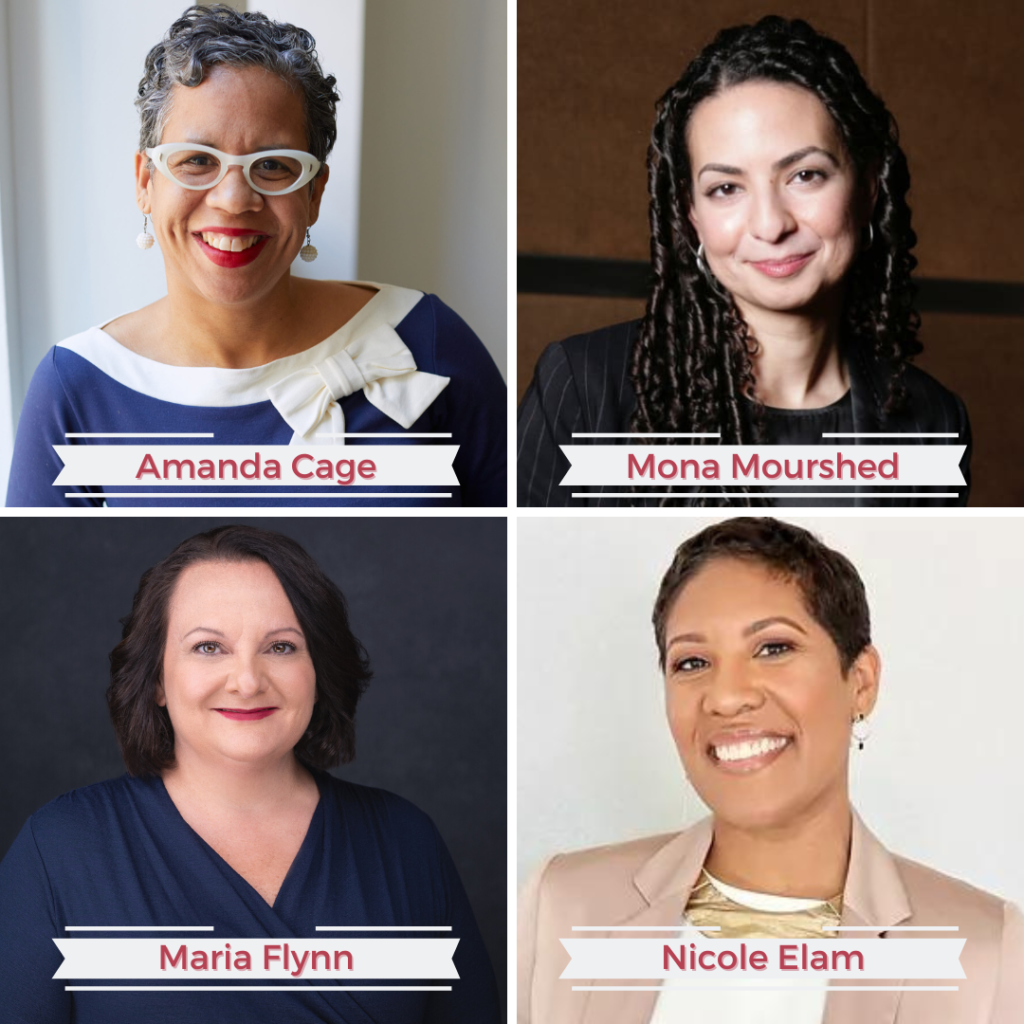

Lisa Gevelber, the founder and vice president, Grow with Google
“The objective is really to make sure that the opportunities that are created by technology are truly available to everyone. It’s an economic opportunity program that really has two pillars, which is how do we help small businesses succeed, and then how do we help people reach their full economic potential regardless of their background, education, and make sure that they really have opportunities to get great, high-paying, high-growth jobs.”

Papia Debroy, senior VP of insights, Opportunity@Work
“It’s important to recognize that more than half of our workforce are STARs [Skilled Through Alternative Routes]. These are workers with the high school diploma without the four-year college degree, but who have incredibly valuable skills in the U.S. labor market. In fact, there are more than 30 million today in our U.S. labor market who we term to be rising STARs.”

Marlene Orozco, associate director, Stanford Latino Entrepreneurship Initiative
“If we look at the last 10 years alone, the number of Latino-owned businesses has grown 44% compared to just 4% for non-Latinos. This is not just happening in those businesses that are non-employer businesses or solo-led businesses. This growth is also happening in employer businesses. This is important because the number of Latino-owned employer businesses has grown 35% compared to just 5% for all others.”

Jill Houghton, president and CEO, Disability:IN
“We are a movement and we’re barely scratching the surface. There is a lot of work to do. We know that discrimination is alive and well, right? But the power of what we’re doing at Disability:IN (is) we are that place where business comes together and they’re competitive, but they’re in it together to learn from each other and to tear down those walls to continue to learn from each other around.”
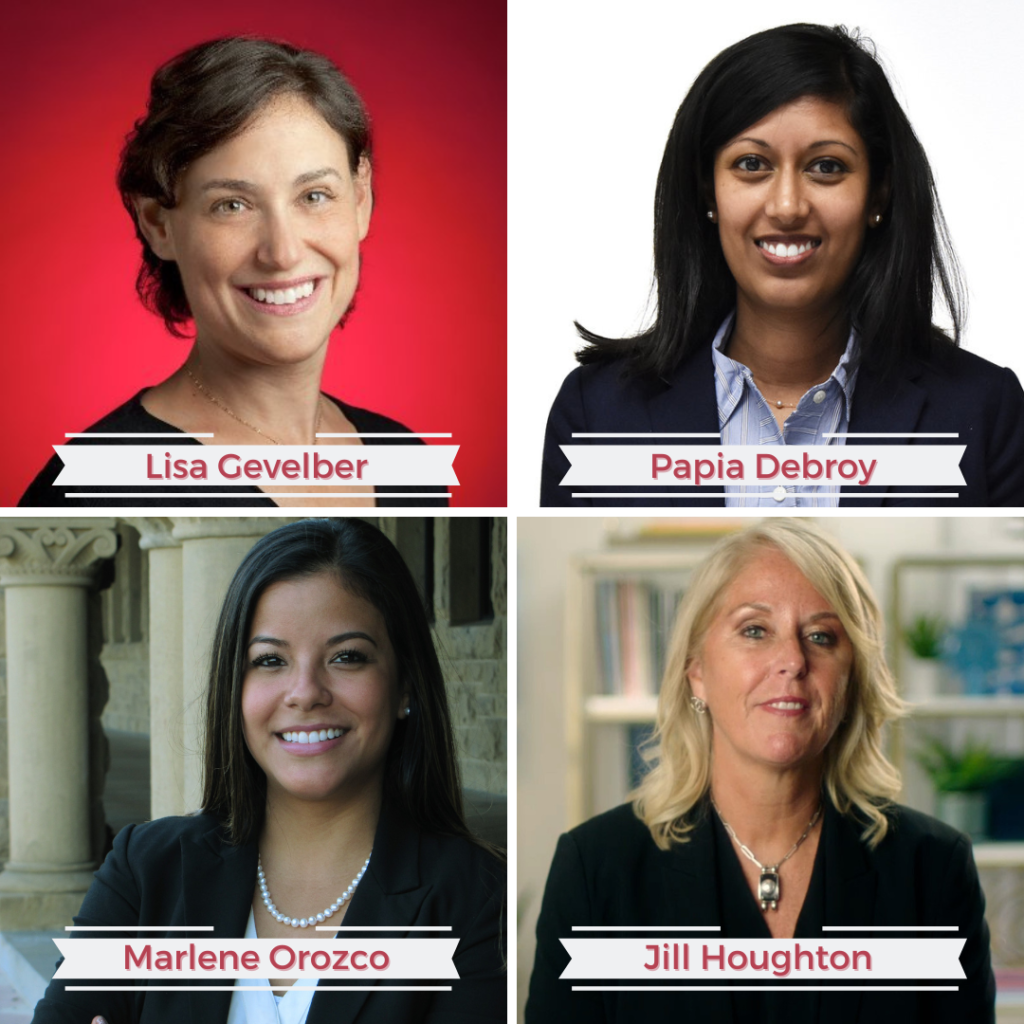

Wendi Safstrom, president, SHRM Foundation
“We’re working with HR professionals to change their model a little bit. When they’re reading resumes or they’re writing job descriptions, or even the questions they ask of a candidate to be more focused on life experience, the kinds of technical and soft skills that they bring to the workforce – as opposed to ‘Tell me about yourself, where did you go to college, and tell me about all this experience you may or may not have had.’”

Monica Munn, managing director of social impact, World Education Services
“Unfortunately, oftentimes folks may be under- or unemployed given the incredible skills that they bring. Research from the Migration Policy Institute found that two million individuals that have international education and training are unemployed or underemployed. They could be filling really hard-to-fill jobs in our health care sectors and in other spaces bringing their degrees and training from countries around the world.”

Diana Caba, assistant vice president for policy and community engagement, Hispanic Federation
“The dire need for digital skills is a longstanding issue for communities of color, in general. And before the pandemic, the digital divide has been especially detrimental to the economic prospects of Latinos of all ages. The Latino workforce is growing exponentially. A lot of those workers are lacking critical digital skills to be able to work, to be able to progress in their careers, to be able to increase their financial security.”

Margot Brown, vice president of environmental justice and equity initiatives, Environmental Defense Fund
“We’re growing this whole new cohort of students that are really able to work with communities in a way that they understand the context, the complexities, systemic racism, and all the things that come along in that space. It makes them become better listeners and think through how to address the climate crisis with a justice and equity lens.”
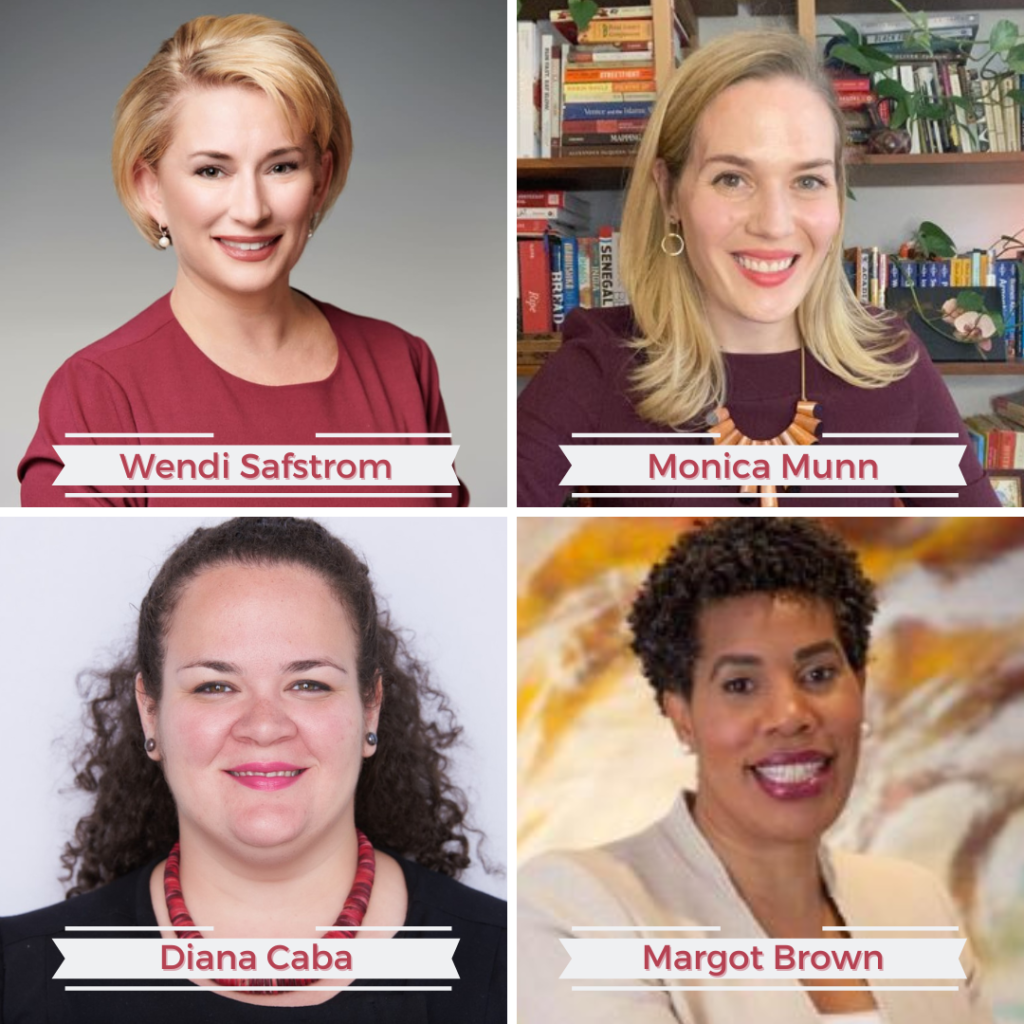

Carolyn Lee, president and executive director, The Manufacturing Institute
“We don’t have enough people who are aware of the opportunity. The other challenge is that people who are looking for jobs today don’t necessarily have the skills we need. So, we first have to attract them and then we need to train them to make sure they’re able to access these upwardly mobile manufacturing careers.”

Carol Eggert, SVP of military & veterans affairs, Comcast NBCUniversal
“The continued civilian military divide impacts veteran transition. On the part of the employers, there remains a lack of an understanding of the skills military talent brings, and that are often the skills needed to face the demands of an ever-changing workforce.”

Christine Cruzvergara, chief education strategy officer, Handshake
“We are expanding into non-traditional education partners, so not only our four-year and our two-year partners, but we want to make sure that we’re thinking about these non-traditional providers like boot camps, for example, that are really helping to skill and upskill so many learners and so many workers. How do we help ensure that those individuals are also able to find opportunity?”

Bertina Ceccarelli, CEO, NPower
“We, without doubt, see that companies that choose to invest in their talent and identify strong potential early on and see it realized through additional development and training have, on average, two to three times the retention as companies who don’t have the systems in place.”
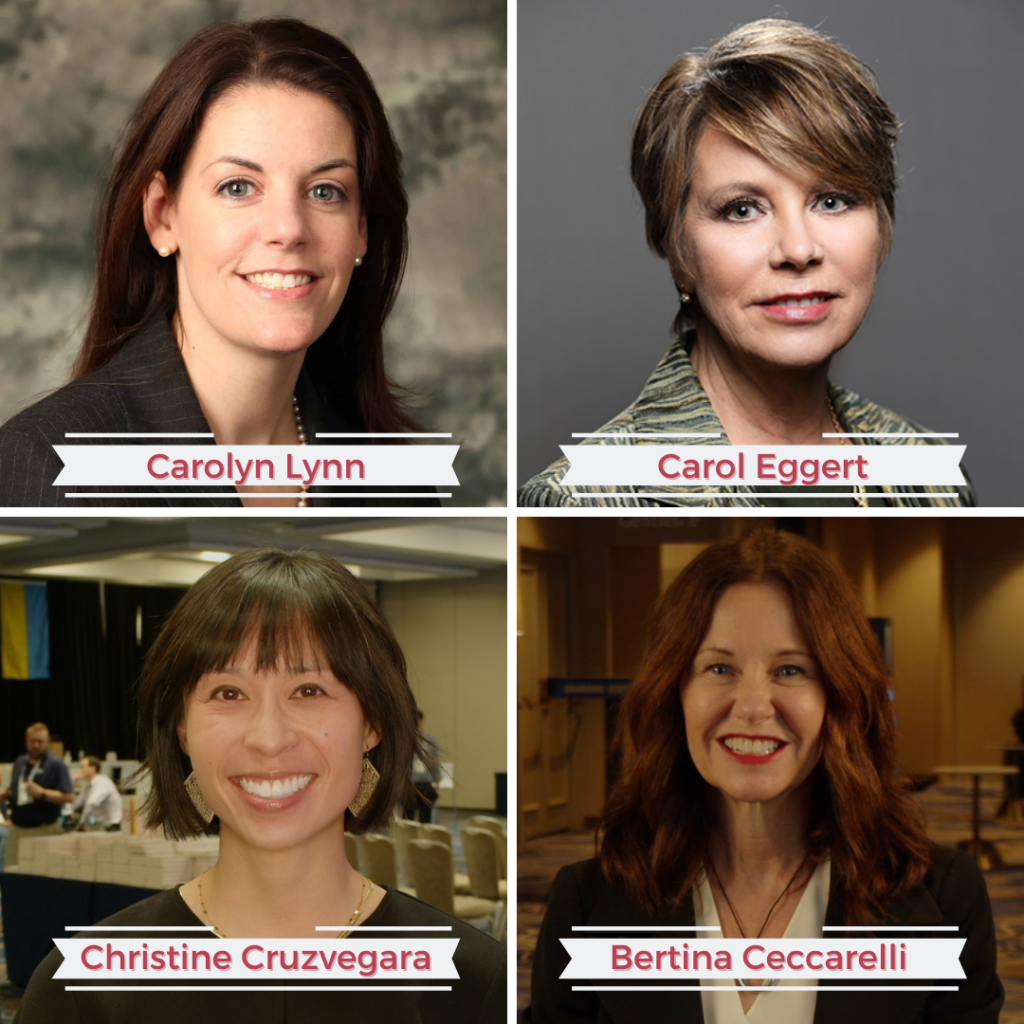

WorkingNation senior editorial producer Laura Aka contributed to this article.

